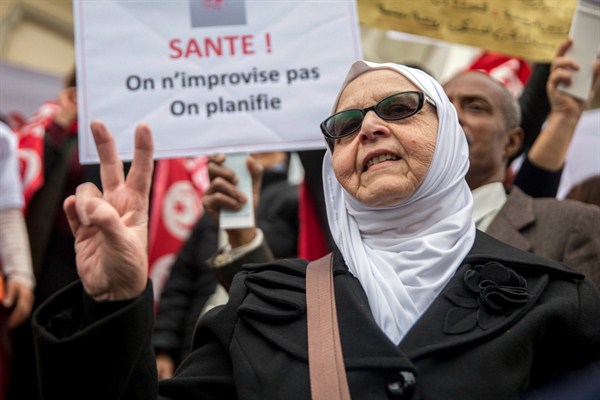KASSERINE, Tunisia—The blast that claimed the life of Cherifa Hilali was likely meant for a soldier, not a civilian. One day in May 2016, Hilali, 40, was out picking rosemary on Mount Semmama, an area near the border with Algeria where Islamist extremists routinely battle Tunisian security forces, when a land mine detonated. The explosion killed her and another woman and left a third woman injured. “They were walking through a trail normally used by the military,” Hilali’s husband, Makki Hilali, told me when I met him in February.
Rising up from fields of olive trees and cacti, Mount Semmama has long been a source of livelihood for those living around it. It is covered in rosemary and other plants used to make essential oils, and local shepherds take their animals to graze in the highland areas. In recent years, however, the mountain has become a battleground in the conflict against Islamist armed groups that settled along the country’s porous border with Algeria in the aftermath of Tunisia’s 2011 uprising, which toppled President Zine El Abidine Ben Ali.
Though the insurgents have primarily hit state security forces, they are increasingly targeting civilians, including those they suspect of helping the army. The entire population must cope with the consequences of living in what is now a military zone. The lower hills of the mountains, once lush and green, have turned yellow because of artillery bombardments and the burning of vegetation by Tunisian forces trying to reduce the areas in which militants can hide.
Listen to Francisco Serrano discuss this article on WPR’s Trend Lines Podcast.

